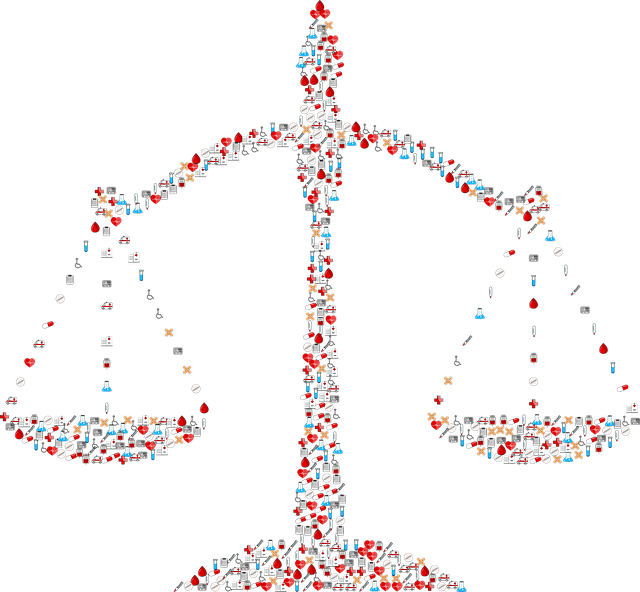Being involved in a drug crime demands immediate action and a clear understanding of your rights. This article provides a straightforward overview of what to do if you’re involved in a drug crime, from invoking your right to remain silent to securing legal representation and navigating subsequent legal procedures. Here, you’ll find step-by-step guidance to effectively manage your situation without delay.
Key Takeaways
- Individuals have the right to remain silent and to legal representation upon arrest for drug crimes, and they should invoke these rights immediately to avoid self-incrimination and ensure fair legal proceedings.
- Drug possession charges in Utah are categorized into five schedules, with penalties ranging from misdemeanors to felonies based on the substance’s schedule, and there are alternative sentencing options such as diversion programs and probation that can be explored with legal counsel.
- It’s critical to stay informed about changes in drug laws, understand the professional and personal impacts of drug crime charges, and seek support and counseling to maintain well-being throughout the legal process.
Understanding Your Rights and Immediate Actions

Being involved in a drug crime can be an overwhelming experience. The shock, the fear, the uncertainty – it’s a whirlwind of emotions that can leave you feeling powerless. But you don’t have to be. Gaining knowledge of your legal rights and being familiar with immediate actions to take can empower you to protect yourself and effectively manage the situation.
The Miranda warning, which law enforcement must read during an arrest, informs individuals of their rights, including the right to remain silent and the right to legal representation. Upon arrest, maintaining your composure and invoking your rights explicitly are crucial steps. Refrain from answering questions without your attorney present, as this can protect you from self-incrimination.
Remember that your first court appearance is not a trial but a formal notification of the criminal charges against you and an advisement of your rights.
The Right to Remain Silent
The right to remain silent is one of the most fundamental rights you have during an arrest. It’s a protective shield against self-incrimination, preventing your words from being used against you in court. But this right is not just for when you’re formally arrested; it applies during any interaction with law enforcement.
But how do you exercise this right effectively? It starts by explicitly stating your desire to remain silent. Refrain from answering questions or signing documents without your attorney present. Remember, any statement or agreement you make can be used against you in court.
Securing Legal Representation
If you find yourself under arrest for a drug crime, securing legal representation promptly should be a priority. Your attorney serves as your guide through the labyrinth of drug laws and defense strategies, ensuring a fair trial and effective plea negotiations.
Your attorney can also protect you from potential violations of your constitutional rights by law enforcement agencies. For instance, they can identify instances where your rights may have been compromised during police interactions and work to exclude improperly obtained evidence. Their expertise is also invaluable in navigating the complexities of Utah’s categorization of controlled substances in drug possession cases.
Navigating Law Enforcement Procedures

Being arrested for a drug crime is undoubtedly harrowing. However, maintaining composure and abiding by police officers’ directives is integral to preventing additional charges like resisting arrest. While it’s important to exercise your right to remain silent, you should also seek advice from legal counsel to ensure you don’t inadvertently waive this right during interactions with law enforcement.
Once you’re transported to the station, use your opportunity to make a phone call wisely. This is the time to contact an attorney or a trusted family member to arrange for legal representation. At your initial court appearance or arraignment, request bail to potentially avoid remaining in custody while awaiting trial.
Analyzing the Charges and Consequences
Working closely with your attorney is the initial step towards comprehending the charges and potential consequences you encounter. In Utah, drug possession charges involve an understanding of the classification of controlled substances, categorized into five schedules, with Schedule I being the most severe.
Penalties for drug possession range from misdemeanors for Schedule V substances to felonies for Schedules I and II. The severity of these charges, as determined by the Drug Enforcement Administration and supported by the Drug Enforcement Agency, can be enhanced for repeat offenders or for crimes committed in drug-free zones, such as drug trafficking or selling drugs, resulting in increased severity such as third-degree to second-degree felonies or even harsh penalties like mandatory imprisonment.
It’s also worth noting that in Utah, individuals who do not physically handle the drugs themselves can still face legal consequences under the concept of ‘constructive possession’, where knowledge and the capacity to exercise control over the drugs are legally significant.
Developing a Defense Strategy
After comprehending the charges and potential penalties, you can then proceed to formulate a defense strategy with your attorney. This can involve a detailed review of the details of a search warrant to ensure it conforms with legal requirements, including proper specifics on the location and time of the search as allowed by law.
Your attorney can use a Franks motion to contest the validity of an illegal search warrant by proving that the affidavit contained deliberate falsehoods or significant omissions, which affected the probable cause determination. This could lead to the suppression of evidence and potentially lead to case dismissal or reduced charges.
Your defense attorney’s role extends to protecting against unlawful evidence acquisition, which can result in the exclusion of such evidence from court proceedings.
Considering Plea Bargains and Diversion Programs

While navigating the legal system, it’s beneficial to also consider alternatives to trial or imprisonment. Plea bargains and diversion programs offer such alternatives. Plea bargains can lead to reduced charges and lighter sentences, but it’s important to remember that they may still lead to consequences such as serving a criminal sentence.
On the other hand, Utah’s diversion program allows nonviolent offenders to avoid jail time by fulfilling certain requirements. This could lead to reduced charges or even dismissal of the case upon successful completion. It’s crucial to discuss these options with your attorney to understand the implications of your plea options and the potential outcomes.
Plea Bargain Insights
Plea bargaining is often considered when:
- the defendant’s case is not strong, and conviction seems likely
- it offers a chance to secure a reduced sentence compared to what might be obtained at trial
- you possess substantial evidence in your favor, you may be able to secure more advantageous terms in a plea deal due to greater leverage in negotiations with the prosecution.
However, accepting a plea bargain also comes with certain implications. For example, it circumvents the uncertainties associated with jury verdicts, which could be swayed by factors such as biases, thereby avoiding potentially harsher outcomes if one were to be proven guilty. Also, accepting a plea bargain limits your right to appeal, eliminating the potential for a review of legal errors that typically would be part of a trial record.
Diversion Program Options
Diversion programs in Utah:
- Are voluntary
- Aim to benefit first-time offenders by potentially reducing or dismissing charges upon successful completion
- Require that you do not have any prior state or federal drug-related convictions
- Allow you to participate only once
The Salt Lake County diversion program assigns offenders to one of four levels based on a risk assessment and the specifics of their crime. For instance, Level Three is geared towards low to medium-risk offenders who agree to a plea in abeyance, with the possibility of charges being dismissed after completing a 12 to 36-month program.
Preparing for Court Proceedings

Although court proceedings may appear daunting, appropriate preparation can enhance your ability to manage them effectively. The trial process includes stages such as:
- Jury selection
- Opening statements
- Witness testimony
- Closing arguments
You’re required to be present for the verdict, which must be unanimous.
It’s crucial to go over your testimony with your attorney, understand the potential outcomes of your case, and prepare for the rigors of cross-examination. Confidentiality is vital, but so is open communication with your attorney for clarity about the proceedings and your legal strategy.
Complying with pretrial conditions includes understanding court etiquette, such as appropriate demeanor and dress, and the overarching expectations for defendants during court proceedings.
Understanding Sentencing Alternatives

In certain situations, there might be alternatives to sentencing, like probation or rehabilitation programs. Probation for drug offenses in Utah may include mandatory drug testing, substance abuse evaluation, and participation in drug treatment programs. It allows you to avoid prison time, albeit with certain restrictions.
Diversion programs can last 1 to 2 years and may involve a guilty plea held in abeyance. They cater to non-violent offenders with a history of drug use, aiming at rehabilitation through drug court structures and objectives. Your defense attorney plays a crucial role in advocating for these alternatives to incarceration, thereby minimizing the impact on your employment and future.
It’s worth noting that Utah’s indeterminate sentencing system provides a range of potential prison time for felony drug charges, with the actual duration determined by the Board of Pardons and Parole.
Managing Life During and After the Case
Dealing with drug crimes, especially when a case involves drug abuse, may pose emotional challenges and significantly affect your personal and professional life. During this time, it’s important to seek support from family, friends, or professional counseling services to help you cope. Drug crime charges may also lead to professional license suspensions or revocations, affecting your current and future employment.
It’s essential to discuss potential professional consequences with your lawyer and understand any necessary disclosure to employers. If your current job is at risk, consider seeking career counseling or vocational support services to explore alternative employment options. Above all, maintain a healthy routine, including exercise, a balanced diet, and sufficient rest, to support your physical and mental health.
Professional Impact Assessment
Long-term professional repercussions can result from a drug conviction. It can significantly diminish employment opportunities, affect your education opportunities, and even impact certain civil rights. Therefore, it’s crucial to fully understand the potential impact of a drug conviction on your professional life and take steps to mitigate these consequences.
If you’re facing potential job loss or professional license suspension, it may be beneficial to explore alternative employment options. Consider seeking guidance from a career counselor or vocational support service. They can provide valuable insights and resources to help you navigate this challenging time.
Support and Counseling Resources
The emotional burden can be heavy when handling a drug crime case. It’s important to not face this struggle alone. Support groups can provide a safe space for you to share your experiences and learn from others who are going through similar situations. They can provide a sense of community and understanding that can help alleviate feelings of isolation and shame.
Counseling services can also be beneficial during this time. They can help you manage stress, anxiety, and other emotional impacts caused by the legal process. Professional counselors can provide coping strategies and tools to help you navigate this challenging time.
Staying Informed and Proactive
Given the continually evolving legal landscape, staying abreast of changes in Utah’s drug laws is crucial. Proactive monitoring of Utah legislative sessions and newly enacted laws can help you understand how changes may affect your legal situation. Understanding the implications of new amendments like S.B. 86 and H.B. 27 is critical for individuals involved in drug-related legal issues, as such changes can influence both the defense approach and potential legal outcomes.
Maintaining open communication with your defense attorney is also important. They can provide updates on any changes in the law that could impact your case or defense strategy. While staying informed about your legal case is important, it’s also crucial to set boundaries to avoid becoming overwhelmed. Allocate specific times to discuss the case with your lawyer or support network.
Summary
From understanding your rights, and navigating law enforcement procedures, to considering plea bargains and sentencing alternatives, facing a drug crime case requires a comprehensive understanding of the legal landscape. It involves not only understanding the charges and potential consequences but also developing a strong defense strategy. It’s a journey that involves emotional challenges and potential impacts on your professional life. But with the right legal representation, support, and proactive steps, you can navigate this journey more effectively and secure the best possible outcome.
Frequently Asked Questions
How can we prevent drug abuse in youth?
To prevent drug abuse in youth, it’s important to be a positive role model, communicate openly with your children, pay attention to their activities, and get involved in their lives. Additionally, don’t ignore any signs of potential substance abuse.
What is drug abuse Wikipedia?
Drug abuse, also known as substance abuse, refers to the harmful use of drugs that affect the individual’s health and well-being, often leading to changes in behavior. It is considered a form of substance-related disorder and is defined differently in various contexts.
What is the relationship between drugs and crime?
The relationship between drugs and crime is complex and multifaceted. Drugs can lead to a mental or physical state conducive to lawbreaking, a perceived need to steal, and reduced access to formal mediation, consequently leading to an increase in predatory and retaliatory crimes (Answer 1).
What are substance-related crimes?
Substance-related crimes refer to criminal activities linked to the use, sale, and distribution of drugs and alcohol, including possession, trafficking, and consumption of illegal substances. These crimes can involve drugs such as cocaine, heroin, marijuana, and amphetamines.
What are my rights during a drug crime arrest?
During a drug crime arrest, you have the right to remain silent and the right to legal representation. It is important to maintain your composure and refrain from answering questions without your attorney present. For legal representation in the state of Utah contact Darren Levitt.
